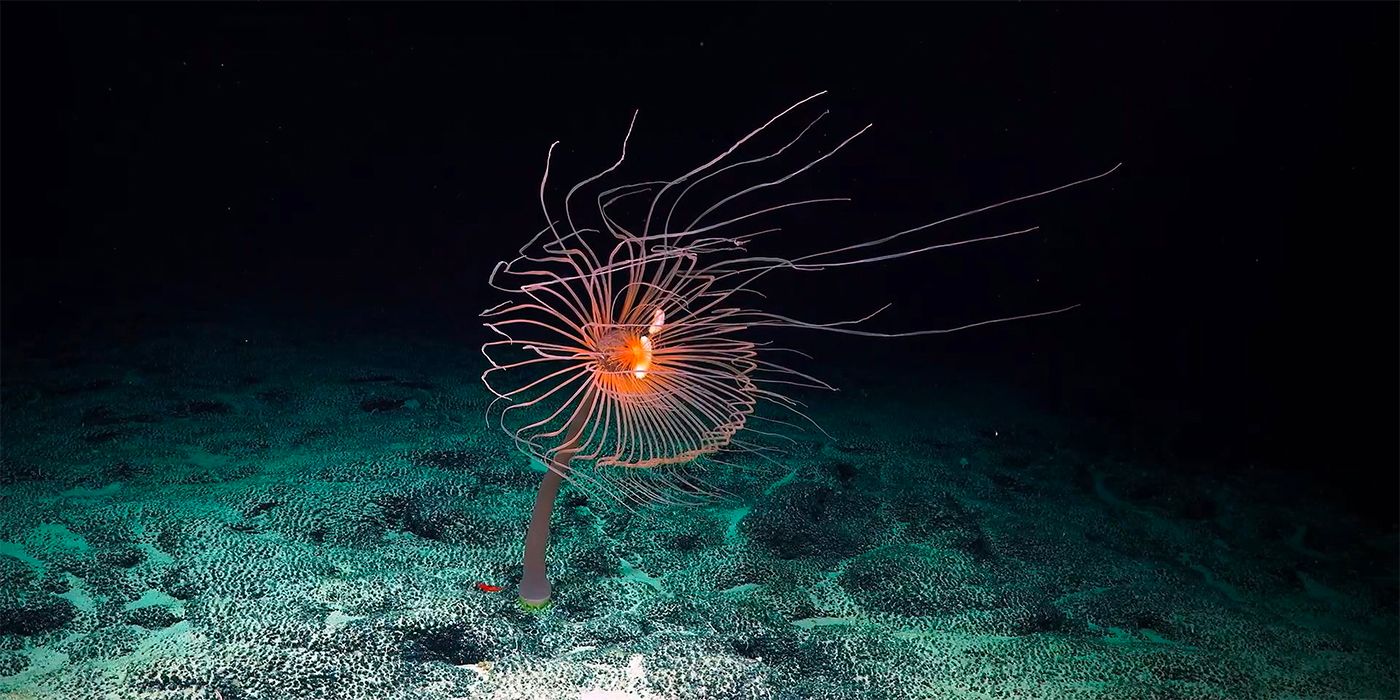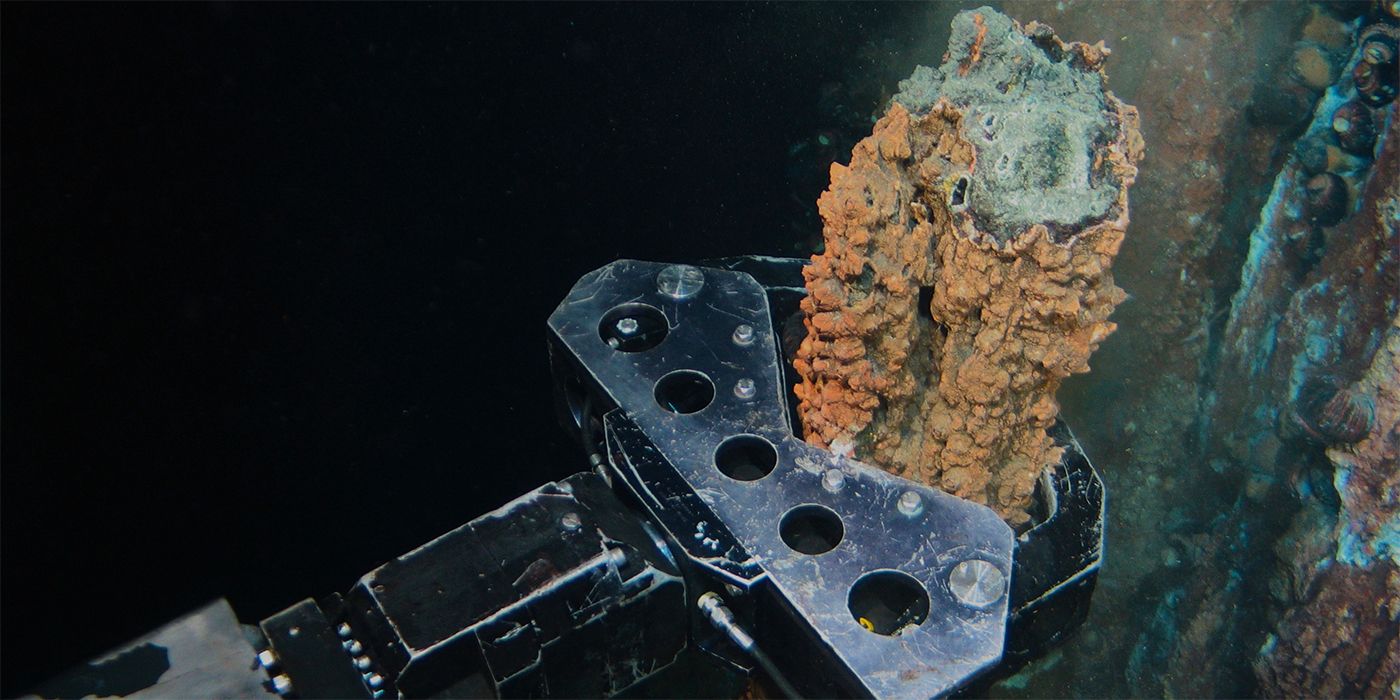You might not peg Jason Momoa as the person to narrate a nature documentary, but one of the surprises of Deep Rising was just how perfect Momoa was for the part. Director Matthieu Rytz wisely has Momoa narrating some of the most self-reflective dialogue of the documentary on the mining of the deep seafloor for metals. If anyone was going to criticize the humans of earth, it should be the King of Atlantis. Momoa aside, Rytz presents us with a new dilemma: just how ethical and environmentally conscious is the switch from oil to electric?
He centers part of his documentary around one subject, Gerard Barron, the chairman and CEO of The Metals Company once known as DeepGreen. Someone, who, on the surface seems to be a man searching for a way to make the world a better place, but in reality is simply just another greedy businessman willing to exploit the world's natural resources. We meet him early on in the documentary as he proposes exploiting the ocean's deep seabed for small green nodules that are made of valuable minerals like nickel. Barron isn't concerned with the microbiology and ecosystems his mining efforts can destroy, for him, this is a precious resource that's just sitting out there at the bottom of the ocean waiting to be exploited.
But, of course, Deep Rising is quick to show us the truth of how much value there is in the deep seabed and how much life is down there. And as the documentary progresses, it's not just a deep sea problem, it's, unsurprisingly, a human problem. In the shift to "green" energy and away from oil and coal, humanity is now demanding the creation of batteries, specifically for electric cars. We are told that going electric is the future, but how many of us know what the process is like to create something like a battery for a car? What is the cost of going "green" and what does that even mean?
We're shown Indonesian rainforests that have been completely gutted in favor of mining its deep nickel reserves. The countries themselves are pushing for mining in an attempt to emancipate themselves from their colonial heritage. Countries like Indonesia are trying to become the leading producer of batteries in the world as companies like Tesla hunger for more and customers demand more electric cars. We hear a call from Elon Musk to mine nickel efficiently and in an environmentally sensitive way, but is that even possible?
Smelting nickel and extracting it requires burning the dirtiest coal, the same goes for minerals like cobalt, lithium, and graphite. Those mines ravage the land and as Momoa points out, we are morphing into an energy-hungry super organism. It's impossible to watch Deep Rising and not feel a distinct sense of dread. Electric cars were thought of as the future of transportation, a clean alternative to burning fossil fuels. But it seems that the switch has only made an already complex energy crisis more so.
The condemnation of Deep Rising is not on people who want to genuinely help the world heal, but on the businessmen and companies that spot an opportunity for further wealth. It's not about saving the planet for these conglomerates, it's about making more money. They're willing to destroy ecosystems that have been functioning for millions of years and trample over life forms that have been alive since the time of the dinosaurs. Economic growth is the priority, not the planet we live on.
And these companies are mining in oceans that don't belong to any country, they belong to the world, to you, and to me. The solution, one engineer points out, is that we must declare all minerals outside national jurisdiction as conflict minerals. It feels vital to spread the messages that are delivered in Deep Rising. Such as the reality of the volume of the amount of water on earth (it covers 70% of the world, but it's a LOT less than you think) or the fact that humans make up 0.01% of the global living biomass, and yet we produce the most disastrous ecological footprint.
Rytz effectively intersplices archival footage and testimonials with mesmerizing images of the deep sea and its wildlife. Cutting from glowing jellyfish with prismatic tendrils to an absolutely ravaged piece of land is jarring and should be worrying to all. Couple that with the somber, critical, and low voice of Momoa, and Deep Rising becomes a compelling watch. Essential for anyone who has bought into the new green revolution, Deep Rising is a warning that there are no quick fixes, and we should always be wary of miracle solutions, as none really exist.
Rating: B-


